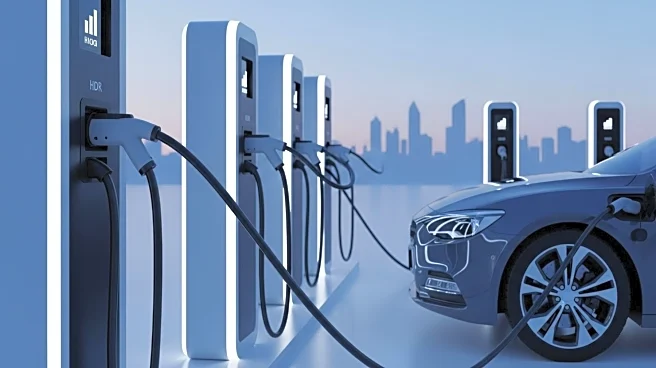What's Happening?
In August, electric vehicles (EVs) captured 30.6% of the auto market in Germany, with battery electric vehicles (BEVs) accounting for 19.0% and plug-in hybrid electric vehicles (PHEVs) for 11.6%. This marks a significant increase from the previous year's 20.6% combined share. However, Tesla's market position has weakened, dropping from 6th to 8th place in market share, now at 3.3%. Ford has surpassed Tesla, increasing its share from 2.5% to 3.9%. The Volkswagen ID.3 remains the best-selling BEV, leading the market for three consecutive months.
Why It's Important?
The shift in market dynamics highlights the growing competition in the EV sector, particularly in Germany, Europe's largest automotive market. Tesla's decline in market share suggests increased competition from traditional automakers like Volkswagen and Ford, who are expanding their EV offerings. This trend could influence Tesla's strategic decisions, including pricing, production, and market focus. The rise in EV adoption also reflects broader environmental and regulatory pressures, pushing automakers to innovate and expand their electric vehicle lineups.
What's Next?
As the EV market continues to evolve, Tesla may need to reassess its strategy to regain its competitive edge. This could involve introducing new models, adjusting pricing strategies, or enhancing its manufacturing capabilities in Europe. The German market's response to new EV models and the potential introduction of more affordable options could further shape the competitive landscape. Automakers will likely continue to innovate and expand their EV offerings to capture a larger share of the growing market.








